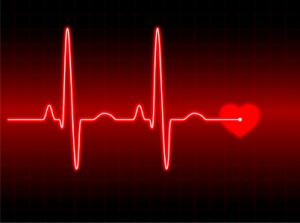Testosterone Myths & Facts
Myth: Testosterone replacement therapy increases cardiovascular risk.
False. A meta-study published in the Journal of the American Heart Association[November 13th, 2013] looked at over 100 testosterone studies and they determined that it’s actually low testosterone levels that are associated with heart health.
In fact, the journal reported that low testosterone was associated with a host of possible conditions:
- Higher risk of cardiovascular disease
- Narrowing of carotid arteries
- Abnormal EKG
- More frequent congestive heart failure
- Increased incidence of angina
- Increased body mass index
- Type II diabetes
- Metabolic syndrome
- Insulin resistance
- More belly fat
- Higher death rate from all causes, including cardiac mortality
Clearly, the suggestion that testosterone therapy can cause heart problems is a complete myth.
Myth: Testosterone replacement causes prostate cancer.
False. Amazingly, this myth is largely based on a report from 1941 — a report based on a single patient!
Let’s consider a recent study that involved a larger group of men instead of an ancient one that involved only one. Researchers in the United Kingdom looked at 1400 men who had received testosterone replacement therapy for up to 20 years and they found only 14 cases of prostate cancer over the course of the study.
This prompted the co-author of the study, Dr. Malcolm Carruthers, medical director at the Center for Men’s Health in London, to state, “This myth about testosterone replacement therapy being linked to prostate cancer has been rooted deep in medical consciousness for over 60 years,”
“But this paper says no,” added Carruthers, “testosterone treatment is actually good for the prostate, not bad.”
The study was published online June 6, 2012, in the Journal of Sexual Medicine.
Myth: Testosterone replacement causes angry and aggressive behavior.
False. Paradoxically, it’s often men with low testosterone levels that are moody, depressed, and even angry, while men with normal or high testosterone levels are generally sociable and gregarious.
That being said, improper usage (very high doses) of testosterone could elicit aggressive tendencies in men that might be predisposed to such behavior. As such, it’s important to work with a physician experienced in testosterone replacement therapy to ensure proper dosages.
Myth: Women don't need testosterone.
False. Generally, the only hormone people associate with women is estrogen, but the testosterone level of a healthy woman is about ten times greater than her estrogen levels.
Testosterone actually plays a huge role in women’s health, psyche, and libido, just as it does in men.
And, just as in men, low testosterone levels in females can lead to problems, including a decrease in bone and muscle mass, a gain in body fat, and decreases in sexual desire and energy.
However, it’s imperative for women to work with a physician skilled in testosterone replacement. Over time, higher-than-desired doses could lead to unwanted side effects such as the growth of body hair or growth of the clitoris.
Myth: You don't have low testosterone because your doctor would have told you during your yearly physicals.
False. Or probably false. The fact is, most doctors don’t routinely check testosterone levels, regardless of the patient’s age. For one thing, it’s generally not covered by insurance, and secondly, doctors generally don’t know that much about the hormone.
Ask almost any doctor and he’ll tell you that medical schools devote a total of about 15 minutes to discussing testosterone; hardly enough to give the average physician comprehensive knowledge of the hormone.
Lastly, even if your doctor was savvy enough to test your levels, the “normal” range for testosterone is extremely broad — around 200 to 1100 nanograms per deciliter — depending on the laboratory used.
Your test might indicate a level of 350, which, while “normal,” is quite low. You might have poor energy, depression, and a non-existent libido, but because your test indicated a “normal” level, your traditional doctor wouldn’t even bother to bring it up.
Recent Articles
Learn from the top thought leaders in the industry.
The Top Testosterone Myths
Myth #1: Testosterone is an illegal drug.
Testosterone is a naturally occurring hormone that flows through the veins of every healthy male or female, even making its presence known as early as the womb. In males it’s responsible for development of genitalia and secondary sexual characteristics that occur during puberty (like a deepening voice, facial hair, broader shoulders, etc.). It’s also responsible for muscle size and tone, erections and sexual function, mental health, bone health, cardiovascular health, and overall health in general.
While it doesn’t play quite so prominent a role in female development, it also plays a role in their lean muscle mass and strength, along with their libido, energy, bone strength, and health in general.
Having healthful levels is crucial to the health of both men and women throughout their lives, and it’s only illegal if it isn’t prescribed by a doctor.
Of course, certain sports organizations have rules regarding using testosterone and other drugs to enhance performance. Case in point, famed cyclist Lance Armstrong was stripped of many of his awards because he used amounts of testosterone that were above and beyond the amount normally found in healthy adult males.
read moreTop 8 TRT Mistakes
Here are the most common mistakes doctors or patients make when starting testosterone replacement therapy (TRT):
1. Using a Treatment Option That Doesn’t Fit Your Lifestyle or Personality
Many TRT doctors just prescribe whatever protocol they’re familiar or comfortable with, be it injections, gels, or even pellets. Unfortunately, all protocols don’t mesh with all lifestyles or personalities.
For one thing, if you’re needle-phobic, injectable testosterone sure isn’t going to work.
Maybe you’re fine with needles, but what if your doc doesn’t want to teach you how to self inject? That means you’ll have to drive to his office once or twice a week for an injection. Does that fit in with your schedule?
Or perhaps your doc prescribes gels or creams instead of injectable T. Do you have enough time every day to apply the gel after showering and let it dry? Are you confident that, while waiting for the gel to dry, you won’t come into contact with your wife or children and inadvertently boost their testosterone levels?
Find a doctor who’s familiar with all TRT protocols and is conscientious enough to question you about your lifestyle and personality. Otherwise, you might settle on a TRT protocol that you end up discontinuing because either it didn’t work well enough, or it didn’t fit your lifestyle.
read moreStudy Shows Testosterone Good for the Heart
Next to regular exercise, eating a healthy diet, and maintaining a low-stress lifestyle, testosterone replacement therapy might be the best thing you can do for your heart.
Sure, that’s a bold claim, but it’s hard to refute the ever-increasing amount of evidence filtering out of the scientific research community. Consider the latest results of a multi-year study that found low testosterone men to be 80% more likely to suffer an adverse cardiovascular event (stroke, heart attack, or death).
read moreDepression and Low Testosterone
Depression is the deep, deep hole to which no light penetrates. It differentiates from sadness or a “decrease in mood” only by a matter of degrees. That degree of differentiation, however, matters little to people suffering from either condition. They only know that they feel dead inside and life, despite all its joys, holds little allure for them.
Telltale symptoms of depression include loss of interest in pleasure or normal activities, sleep disturbances, trouble concentrating, erectile dysfunction, angry outbursts, unexplained physical problems like back pain, anxiety, agitation, or restlessness, or plain old feelings of sadness.
The possible causes are many. It could be genetic. Or it could be from a perfectly understandable cause like the loss of a loved one, physical abuse, financial problems, or, as is the case with many affluent men and women, the realization that money didn’t guarantee any measure of happiness. There are the possible medical causes, too, like substance abuse and major illness. And then there’s the recent discovery that low or borderline-low testosterone levels also contribute to depression.
read moreTestosterone Levels Don’t Matter
Just about every man over the age of 40 knows his cholesterol levels. It’s almost as certain as a professional baseball player knowing his batting average. Nowadays, though, there’s another number that’s starting to attain similar importance, and that’s a man’s testosterone levels.
Given all the publicity testosterone has gotten in the last few years, more and more men are asking their doctor to test their levels to make sure they’re somewhere in the healthy or “normal” testosterone zone.
However, Optimal Health Medical Group (OHMG) knows that a “normal” reading means almost nothing.
read moreDiabetes and Testosterone Replacement Therapy
It seems like diabetes is everywhere. About 29 million Americans have it, and there are probably at least 8 million more who haven’t been diagnosed and are unaware of their condition. Furthermore, roughly one of out three adults has pre-diabetes and 9 out of 10 of them don’t know it, either. It’s an endocrinological mess.
Now it’s long been known that testosterone plays a role in type 2 diabetes (the type that’s largely preventable), but the discovery that the relationship is a two-way street is more recent. Yes, people with diabetes often have low testosterone levels, but it’s also true that having low testosterone can promote conditions that can lead to diabetes, too.
More troubling, though, is recent research that shows low testosterone levels put men with type 2 diabetes at a significantly higher risk of death, which might lead you to wonder whether testosterone replacement therapy can reverse the risk of death in diabetics with low testosterone.
The research says yes.
read more





